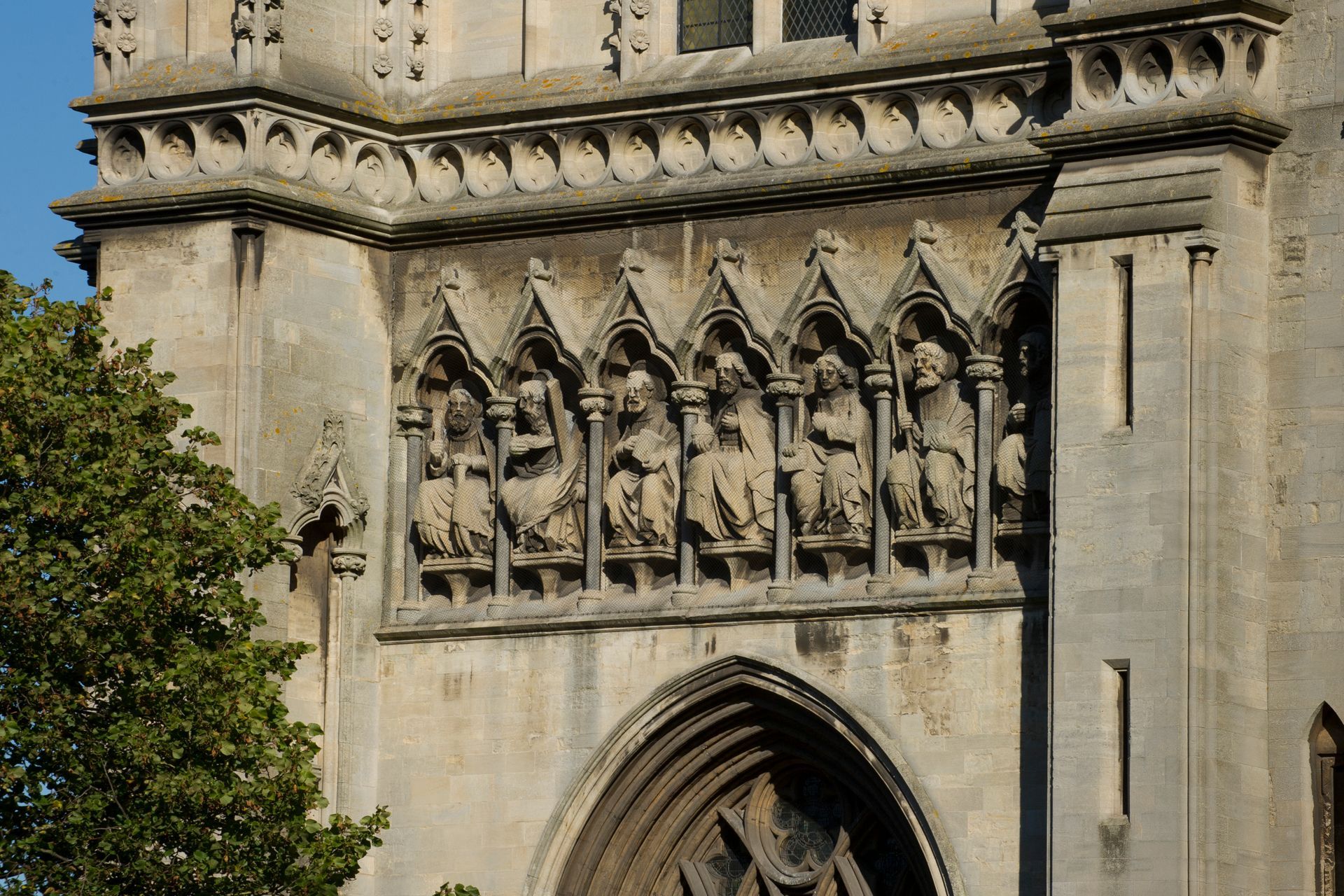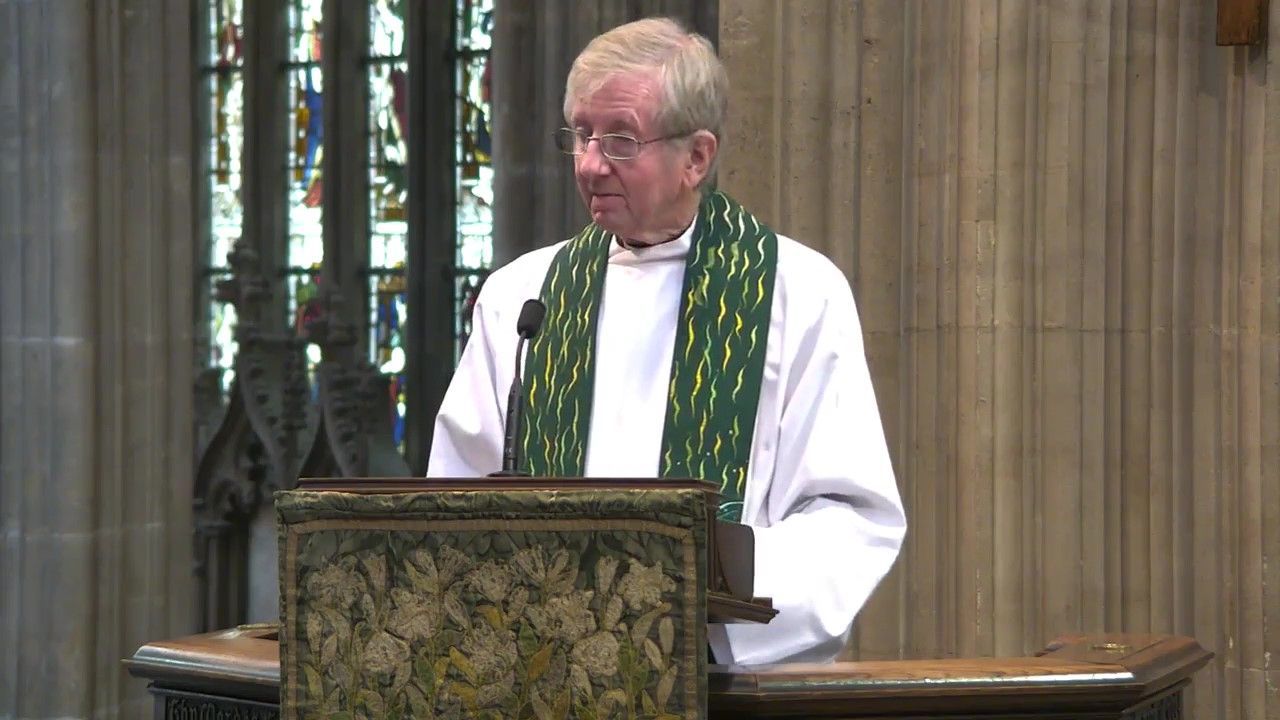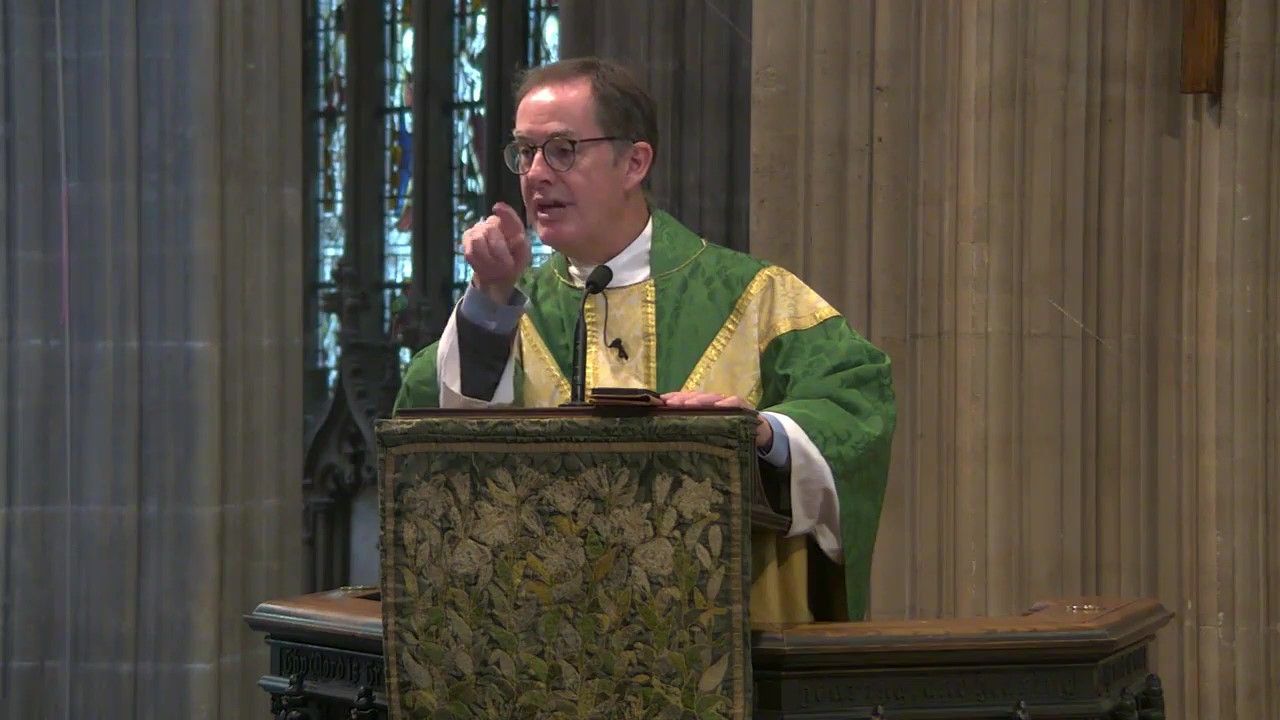Lord of the Sabbath
Many of our leading politicians leave an image in our mind which they may rather wasn't there! Remember Ed Miliband and that bacon roll in 2014? For others, its words that have the same impact. I have to admit that whenever we hear about cornfields (or wheat fields to be more accurate) I am taken back to Theresa May's interview in 2017 when she said that probably the naughtiest thing she'd ever done was running through fields of wheat as a child! And to ensure political neutrality, you may have seen Sir Ed Davey falling from a paddleboard in the last couple of days and some may remember the infamous interview with Green party leader Natalie Bennett on LBC a few years ago.
With the election campaign in full flow, the only thing I will say about politics is ... have you registered to vote?
So back to the cornfield and the image of Jesus and his disciples plucking heads of grain to chew on (Mark 2.23ff). There is no way of knowing whether the disciples were bored and thus wanting something to do, or hungry and needing something to eat. But the Pharisees decided that the disciples were engaged in 'work' which is not acceptable on the sabbath.
Jesus reminds them of their own shared history, their own shared faith story, when David and his companions were hungry. David took some of the bread reserved for the high priest and shared it with his companions. By reminding the Pharisees of this part of their shared history, Jesus is claiming this narrative as his own and is able to conclude that the sabbath was made for humankind and not humankind for the sabbath. Moreover he concludes that the Son of Man is lord even of the sabbath.
It's only the second time that Mark has used the phrase 'Son of Man'; the first was just a few verses earlier when Jesus declares "that the Son of Man has authority on earth of forgive sins". There are a further twelve appearances of this phrase culminating in the declaration before Pilate: ‘Are you the Messiah?’ Jesus said, ‘I am; and “you will see the Son of Man seated at the right hand of the Power”.'
It seems that Mark is introducing us to the concept of Son of Man and only at the very climax of his narrative does he reveal that Jesus and the Son of Man are one and the same. Mark is clear from the very outset of his gospel that Jesus is "Jesus Christ, the Son of God" but the concept of Son of Man is one that unfolds in a more nuanced way around stories of the authority the belongs to Jesus Christ, Son of God and Son of Man.
And it is interesting to note that Jesus often uses the authority he has for the benefit of those who are struggling either physically, emotionally or with more everyday things like hunger.
I am reminded of something that Kathy Galloway of the Iona Community often uses:
When my children are hungry
I don't ask them to sing my praises
I don't ask them to tell me how sorry they are for what they have done
I don't ask them to tell me what is important to them
I don't ask them to remember all the troubles around the world
When my children are hungry
I feed them
Because I love them
The work undertaken in the name of St Mary Redcliffe in the parish for those who are struggling is a fantastic testimony to this understanding of our calling to help those around us, not because we're great or because they'll thank us, but because they are hungry or thirsty or in need of some legal help or help filling in a form or an opportunity to get outside and meet others, or meet together to cook some food.
Every time we enable some gentle kindness, some practical goodness, some unconditional love, it is as if we are in that cornfield - not acting naughtily - but challenging the powers that keep people in check and celebrating the freedom we know in Jesus Christ, Son of God and Son of Man.
Dan Tyndall
30 May 2024






